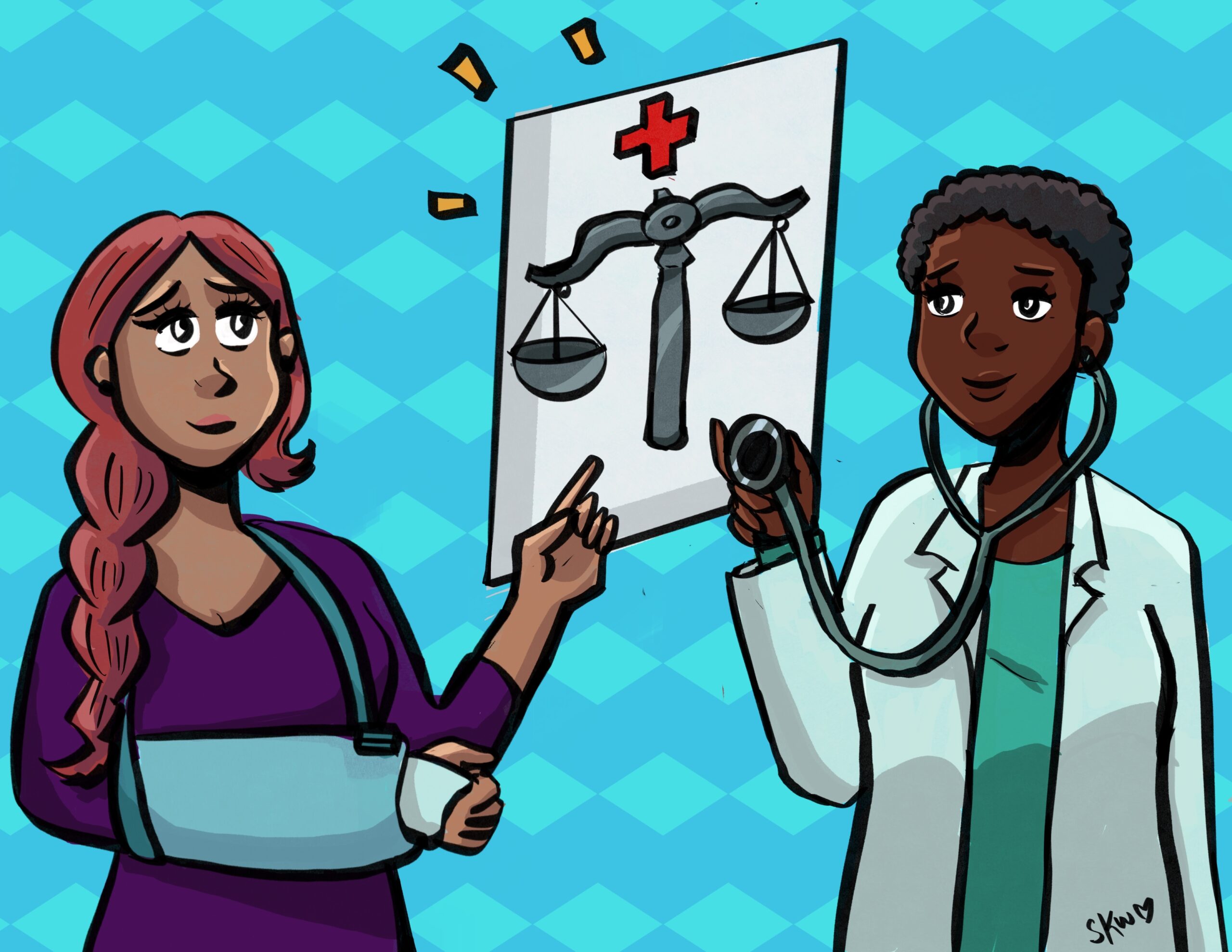Does Canada need a patients’ Bill of Rights?
The recent COVID-19 pandemic has illuminated the mounting flaws in our healthcare system. Moving forward, we must better prioritize patient health outcomes.
There is no doubt that the collective experiences of the pandemic have left an indelible mark on everyone’s life. For most of us, the pandemic is a hazy memory. But for healthcare workers and patients, the pandemic remains a stark reminder of the inefficiencies and dangers of Canada’s health care system.
Canada is one of the leading countries in healthcare, and we are fortunate enough to have free healthcare in place, making it easy for citizens to get treatments with no additional costs, as opposed to our neighbors down South, where a per-day hospital visit can cost almost three-thousand dollars.
To ensure that all people residing in Canada receive medical services, Canada follows three guiding principles regarding healthcare: universality, accessibility, and public under the Canada Healthcare Act.
What the pandemic showed us
Yet though this system has proved somewhat effective, the pandemic’s sudden rise and lingering presence continues to highlight several flaws in our supposedly world-class healthcare. The sudden demand for health care services has resulted in long waitlists, surgery and appointment cancellations, and the postponement of life-sustaining medical services. On top of this, the pandemic years reported widening inequalities based on race, gender, and socioeconomic status, as reflected in higher death rates and comorbidities from COVID-19. This urges one to ask how effective and judicious Canada’s foundational principles of health care really are.
With the sudden demand, healthcare workers faced multiple challenges and increased pressure to maintain the same standard of care as before. Our doctors and nurses increased their shifts despite reports of staff being chronically overworked psychologically and physically. Towards the end of the pandemic, many workers chose to pivot professions and transition into a more sustainable career.
The shortage of healthcare workers is also underscored by the medical education system in Canada, which is notoriously strenuous to matriculate into and endure. Additionally, the country makes it incredibly challenging even for aspiring healthcare workers who have the skills and ambition, due to the cost of education and debt incurred, as well as sparse availability.
We must acknowledge that behind strained healthcare workers, patients and their loved ones are struggling too.
The need for a patient’s rights bill
The Canadian Healthcare Act does not outline individual patient rights. A separate patient and healthcare worker bill can help establish these boundaries and highlight the role of healthcare and patient rights in receiving healthcare. Establishing these legal rights, especially regarding timely access to medical care for patients and not overworking healthcare workers, could help mitigate the problem of long wait times and patients and their families not feeling supported during times of crises, which have become more pronounced during COVID-19.
Health can degrade quickly, and waiting for care with no answer in sight can harm someone’s health. Setting acceptable wait times for emergencies and less urgent procedures will ensure patients receive the necessary care within a reasonable timeframe.
The pandemic has also underscored the importance of telemedicine, where certain health care services and consultations can be done digitally without the need to visit a clinic or hospital. With more healthcare services provided digitally, clear guidelines should also be developed to protect health information shared through virtual platforms. This bill could help address these issues by establishing data privacy standards tailored to the ever-changing digital healthcare system and the rise of AI, which is already playing an instrumental role in shaping how health is administered.
The conversation about patient rights should also include considerations for healthcare workers. Protecting the rights of healthcare providers is just as essential for maintaining the quality of patient care and healthcare workers’ mental health and well-being. During the pandemic, the risks faced by healthcare workers due to overwhelming workloads, long work hours, and an increase in demand emphasize the need for stronger legal protections.
Developing policies that ensure adequate staff, making the journey to be a doctor less costly, safeguarding against unsafe working conditions, and providing mental health support is essential. Healthcare workers are the backbone of this country in many ways, and setting minimum staffing standards in hospitals could help reduce the strain on individual workers while protecting staff in high-risk situations.
In my opinion, accountability in healthcare is essential, and establishing a patient bill of rights is crucial to protect the well-being of one of the essential building blocks of our society. Establishing a good foundation will protect us all in the case of future pandemics and surges in medical need. This will also elevate the voices of marginalized groups.
Although it might take some time to implement these new changes in the system, by slowly working towards these goals, patient and healthcare worker protections will be prioritized. Canada will also be able to strengthen its commitment to equitable healthcare, building a system that is not only free but also fair, resilient, and capable of facing future crises!

